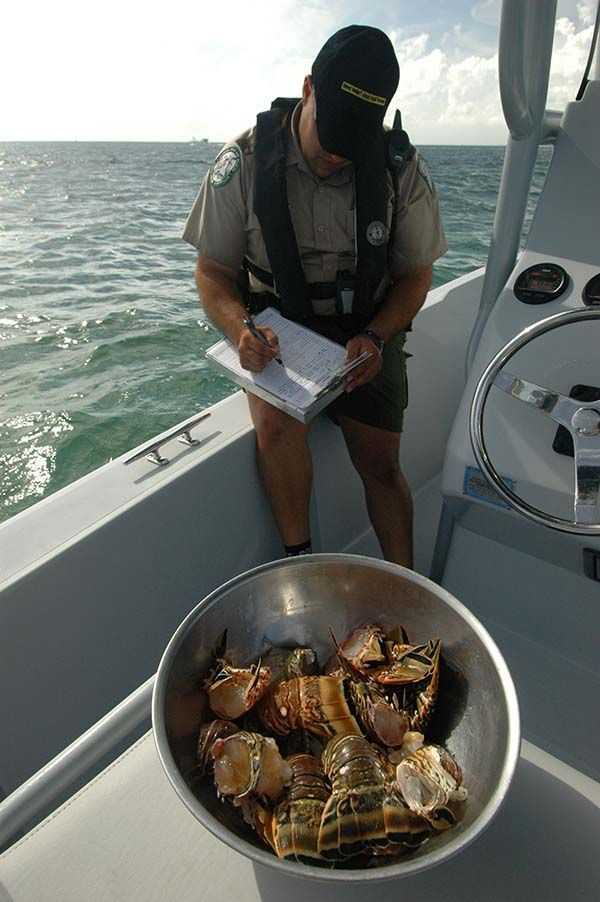
Every July when the official mini-lobster season kicks off, the coastal areas of Florida are flooded with “bug-hunters” trying to find their share of the tasty crustaceans. There are two Florida Lobster Seasons, the two-day mini season and the eight-month regular lobster season. The mini lobster season is always the last consecutive Wednesday and Thursday in July. This year the mini season falls on July 24th and 25th. The regular lobster season opens August 6.
Spiny lobster must have a minimum carapace length of at least 3 inches and must be measured in the water. The carapace is measured from the forward edge (between the rostral horns) to the rear edge of the carapace, and all harvesters must have a measuring device while harvesting.
You’ll also need to know how to identify an egg-bearing female. Female lobsters carry eggs (you will see them directly under the tail) for about a month anytime between April and August. An egg-bearing female is said to be “berried,” and under the regulations they must be released unharmed.
During the short sport season, the recreational daily bag limit is six per person in state and federal waters off Monroe County and Biscayne National Park, and 12 per person in state and federal waters off all other counties. During the regular season, the daily bag limit is six per person in all state and federal waters. Lobster harvesting during either season requires a resident or nonresident saltwater fishing license and a special lobster permit, unless you are exempt.
And remember, a “divers-down” flag (red with a white diagonal stripe) is required while in the water. Visit MyFWC.com/Boating and click on “Boating Regulations” for more on how to snorkel safely.
For information on lobster harvesting, please visit MyFWC.com/Fishing and click on “Saltwater,” “Recreational Regulations” and “Lobster.”
Information provided by the Florida Fish and Wildlife Conservation Commission.